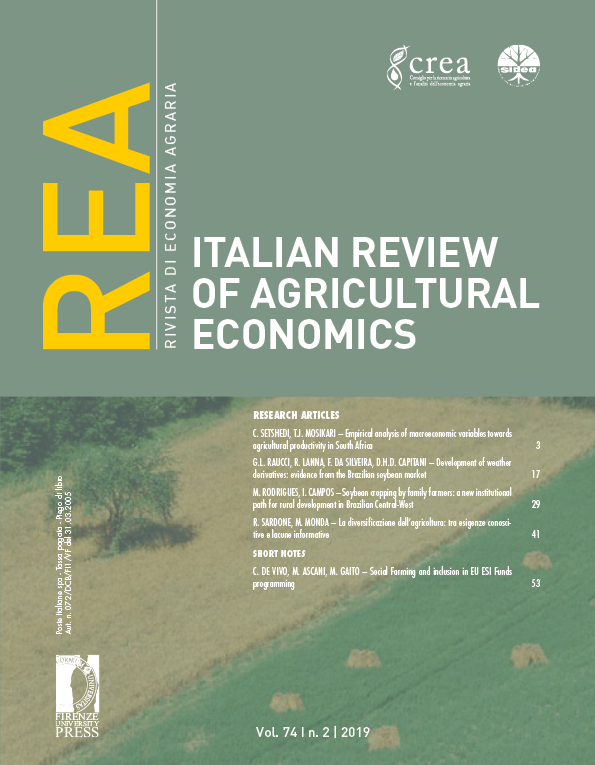Saggi e Ricerche
The role of the CAP in fostering the diffusion of institutional hybrid arrangements: three case studies from Italy
Published 2019-04-03
Keywords
- CAP,
- hybrids,
- NIE,
- agri-food
How to Cite
Ciliberti, S., Chiodini, G., & Frascarelli, A. (2019). The role of the CAP in fostering the diffusion of institutional hybrid arrangements: three case studies from Italy. Italian Review of Agricultural Economics, 73(3), 17–35. https://doi.org/10.13128/REA-25102
Abstract
The last reforms of the CAP have promoted the diffusion of new regulatory tools to improve the coordination of decisions along the agri-food supply chain. Interbranch organizations, protection consortia, the regulation of the supply for PDO products and the extension of rules represent solutions aimed at fostering the diffusion of institutionalized collective arrangements in the presence of an increasing uncertainty surrounding transactions. In light of New Institutional Economics, this paper describes and evaluates some interesting case studies that refer to some strategic sectors for the primary sectors in Italy: wine, tobacco and cheese. The results highlight that CAP can play a central role in depicting a regulatory framework that provides room for meso-institutions to foster the diffusion of hybrid forms of collective arrangements, especially in sectors that are highly regulated or subsidized.Downloads
Download data is not yet available.


